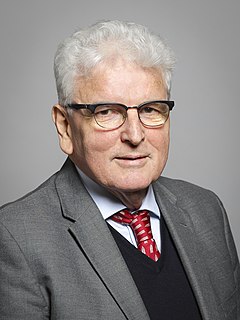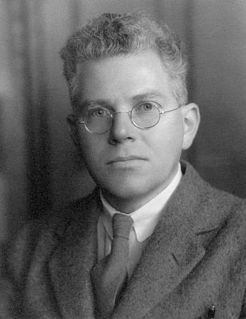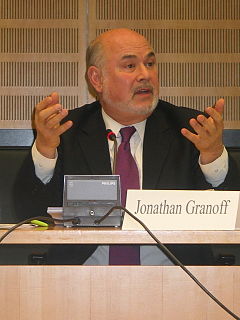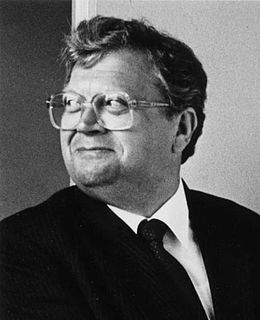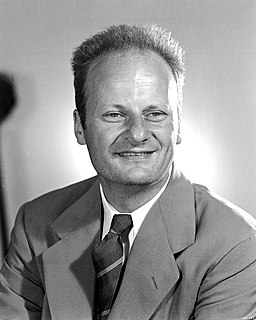A Quote by Des Browne
We live in a very uncertain world, and I think that uncertainty of itself generates an environment which we should not make a decision that deprives future generations of the deterrent effect that the nuclear weapons have provided for us and for almost all of my life.
Related Quotes
What is the only provocation that could bring about the use of nuclear weapons? Nuclear weapons. What is the priority target for nuclear weapons? Nuclear weapons. What is the only established defense against nuclear weapons? Nuclear weapons. How do we prevent the use of nuclear weapons? By threatening to use nuclear weapons. And we can't get rid of nuclear weapons, because of nuclear weapons. The intransigence, it seems, is a function of the weapons themselves.
I, who had been in favour of nuclear energy for generating electricity ... I suddenly realised that anybody who has a nuclear reactor can extract the plutonium from the reactor and make nuclear weapons, so that a country which has a nuclear reactor can, at any moment that it wants to, become a nuclear weapons power. And I, right from the beginning, have been terribly worried by the existence of nuclear weapons and very much against their use.
North Korea and China have proposed what sounds like a pretty sensible option that North Korea should end its development of nuclear weapons, the US should stop carrying out hostile military maneuvers on the North Korean border. The US immediately rejected it. Modernization program is a very clear example of how security doesn't matter. There is no gain in security but massive overkill of the adversary's deterrent capacity. The only consequence of it is to elicit the likelihood of a preemptive attack. And a preemptive attack leads to a nuclear winter world.
Israel produces and stores chemical weapons. So therefore the US will prevent the Chemical Weapons Convention from being imposed on the Middle East. But it's necessary to evade this by misrepresenting the convention, and I think maybe 100 percent of the media, or close to it, go along. But that's a critical issue. Actually, Syria's chemical weapons were developed largely as a deterrent to Israeli nuclear weapons. Also, not mentioned.
I don't want to use the term "nuclear weapons" because those people in Iran who have authority say they are not building nuclear weapons. I make an appeal to the countries who do have nuclear weapons. They don't consider them a nuclear threat. But let's say a country that doesn't have nuclear weapons gets involved in building them, then they are told by those that already have nuclear weapons that they oppose [such a development]. Where is the justice in that?
If you want to find weapons of destruction, you can find them all over the place. Take, say, Israel. There is a very great concern right now about proliferation of nuclear weapons, as there should be. Israel has a couple of hundred nuclear weapons and also chemical and biological weapons. This stockpile is not only a threat in itself but encourages others to proliferate in reaction and in self-defense. Is anybody saying anything about this?
Today we are rightly in an era of disarmament and dismantlement of nuclear weapons. But in some countries nuclear weapons development still continues. Whether and when the various Nations of the World can agree to stop this is uncertain. But individual scientists can still influence this process by withholding their skills.
Presidents should be very careful at all times in discussing the use or non-use of nuclear weapons. Presidents since the cold war have used nuclear deterrence to keep the peace, and I don't believe that any president should make any blanket statements with respect to the use or non-use of nuclear weapons.
A convention on the comprehensive ban of nuclear weapons should be negotiated. Since biological and chemical weapons have been prohibited, there is no reason why nuclear weapons, which are more destructive, should not be comprehensively banned and thoroughly destroyed. All it takes to reach this objective is strong political will.
